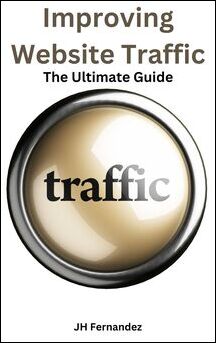In the fast-paced world of digital marketing and SEO, there are countless strategies to boost website traffic and increase your online presence. One often-overlooked technique that can yield significant results is blog commenting. When done right, blog commenting is a powerful tool for driving more visitors to your website and engaging with a relevant online community. In this comprehensive guide, we’ll explore the art of blog commenting and how it can be leveraged to generate website traffic effectively.
Why Blog Commenting Matters:
Blog commenting is an age-old practice that has evolved with the internet. It involves leaving thoughtful and relevant comments on blog posts, typically below the main content. This engagement can be a valuable source of website traffic for several reasons:
- Building Relationships: Engaging with other bloggers through comments helps build relationships and a sense of community. By actively participating in discussions, you establish your presence in your niche.
- Establishing Authority: When you leave well-informed comments, you showcase your expertise and authority in your field. Others are more likely to visit your website to learn more from someone knowledgeable.
- Link Building: Some blogs allow you to include your website’s URL when you leave a comment. This can be an excellent opportunity for building quality backlinks, which can boost your website’s search engine rankings.
- Driving Targeted Traffic: When you comment on blogs within your niche, you are more likely to attract visitors genuinely interested in your content. These are the kind of readers who can become regular visitors or customers.
The Art of Effective Blog Commenting:
Now that we understand the importance of blog commenting, let’s delve into the art of doing it effectively for website traffic generation:
- Choose the Right Blogs:
- Look for blogs that are relevant to your niche or industry.
- Prioritize high-quality, authoritative blogs with an engaged audience.
- Ensure the blog allows for user comments and provides a “DoFollow” link (a link that passes on SEO value).
- Read the Entire Post:
- Never rush to comment without reading the entire blog post. Your comment should be relevant and add value to the discussion.
- Show appreciation for the author’s content in your comment.
- Craft Thoughtful Comments:
- Avoid generic comments like “Great post” or “Nice article.” These are often dismissed as spam.
- Add to the conversation with insights, questions, or personal experiences related to the blog post’s topic.
- Use Your Real Name and Email Address:
- Using your real name instead of a keyword-rich username appears more authentic and fosters trust.
- Use a legitimate email address to receive notifications and responses to your comments.
- Engage in Meaningful Discussions:
- Reply to other comments when appropriate. Engaging in conversations within the comment section can boost your visibility.
- Be polite, respectful, and avoid confrontational language.
- Link to Your Website Carefully:
- When adding your website link, make sure it’s relevant to the discussion.
- Avoid overusing links or using keyword-rich anchor text, which can be seen as spammy.
- Follow Commenting Guidelines:
- Some blogs have specific rules for comments, such as character limits, formatting, or the types of links allowed. Adhere to these guidelines.
- Monitor Your Comments:
- Regularly check your comments for responses and engage with those who reply to your comments. This reinforces your presence and demonstrates your commitment to the community.
- Use Gravatars:
- A Gravatar (Globally Recognized Avatar) is a profile picture associated with your email address. Using a Gravatar adds a personal touch to your comments.
- Track Your Results:
- Monitor your website analytics to assess the impact of your blog commenting efforts on traffic and engagement. This will help you refine your strategy over time.
In the digital age, blog commenting remains a relevant and effective strategy for website traffic generation. When approached with the right mindset and techniques, blog commenting can help you establish your authority, build meaningful relationships, and drive targeted traffic to your website. Remember that the art of blog commenting is not about spamming or self-promotion but about contributing value to the online community and building a positive online presence.
So, get started today by identifying the right blogs, leaving thoughtful comments, and engaging in meaningful discussions to reap the benefits of this powerful yet often underestimated strategy.






